Considered to be the divine revelation of Allah to Prophet Muhammad, the Quran stands as the foundational text of Islam. With 114 chapters and 6,236 verses, it has great spiritual and religious significance for the more than 1.8 billion Muslims worldwide. However, the difficulty of reaching non-Arabic speakers of that message presents a unique challenge: the task of finding an adequate English translation. Choosing the “best” English translation of the Qur’an is not an easy endeavor. It’s more like a maze to walk through, filled with paths, each offering a different window into the divine story. Here we embark on this intellectual journey, exploring the challenges, concepts, and key interpretations that pave the way for a meaningful engagement with the Qur’an in English.
The Challenges of Translating the Untranslatable:
Before going into specific translations, it is important to acknowledge the difficulties of translating the Qur’an from Arabic to English. The language of the Qur’an is full of poetic beauty, rhythm, and layers of meaning. Words can carry multiple meanings, and cultural nuances add more complexity. Translating these nuances faithfully and delivering the message in a plausible English format presents a daunting challenge.
Approaches to Translation:
Translators approach this challenge from different perspectives, each framing the reading experience differently:
Literal translation:
These prioritize the accuracy of each word, attempting to grasp the meaning as directly as possible. Translations such as Abdullah Yusuf Ali’s “The Holy Qur’an” fall into this category, providing extensive footnotes and explanations to clarify certain terms.
Meaning-based interpretations:
These focus on conveying the intended meaning of the passages rather than relying on literal interpretation. M.A.S. and he translated. This approach has been used in Abdel Halim’s “The Qur’an: A New Translation,” which aims to give a natural and modern flow of English while preserving the message.
Explanatory Definitions:
These go into detail, providing explanations and references alongside the definition. Translations such as Muhammad Marmaduke Pickathal’s “Translation of the Glorious Qur’an” exemplify this, offering additional insights and explanations that can help beginners.
Factors to Consider When Choosing a Translation:
With these ideas in mind, choosing the “best” version is a personal journey guided by individual needs and preferences. Key considerations include:
Knowledge of Islamic Arabic:
Beginners may find it easier to understand a simple and explanatory translation such as “The Qur’an: A New Translation.” The pre-knowledgeable prefer the literary beauty and complexity of an intimate, literal translation such as the “Holy Qur’an.”
Your purpose in reading:
Do you want to gain a deeper understanding of religious ideas or just a general explanation of the message? Translations and footnotes with extensive explanations may suit the former, while slow-flowing texts such as Mustafa Khattab’s “The Clear Qur’an” may suit the latter
Preferred style:
Some translations have the rhythmic structure of the Qur’an and poetic verses, while others take a more prosaic approach. Choosing a format that matches your reading preferences can enhance the experience.
Prominent English Translations:
Now, let’s examine some outstanding English translations of the Qur’an, each offering a different window into the text:
“The Holy Qur’an” by Abdullah Yusuf Ali:
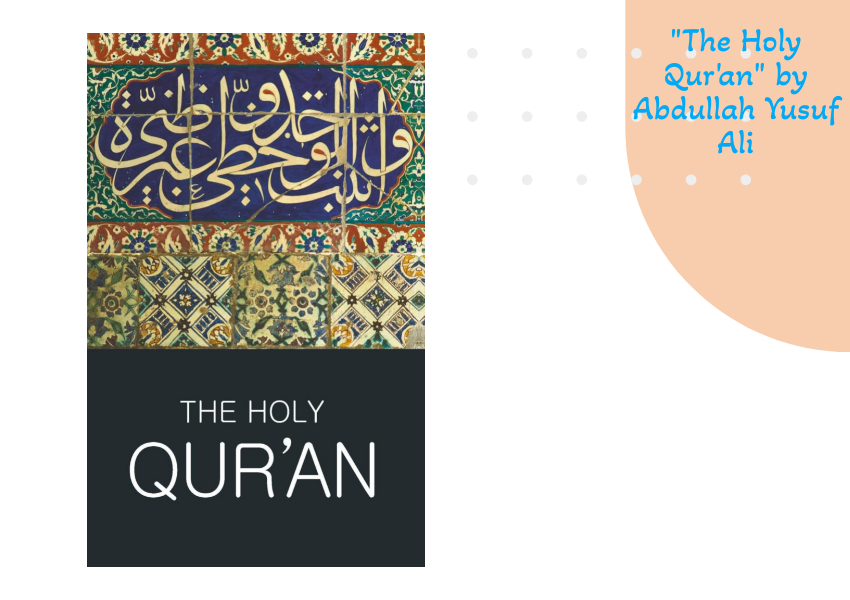
Widely recognized for its scholarly rigor and detailed footnotes, this translation maintains a close relationship with the Arabic text and provides helpful commentary on relevant information.
M.A.S. Abdel Halim “The Qur’an:
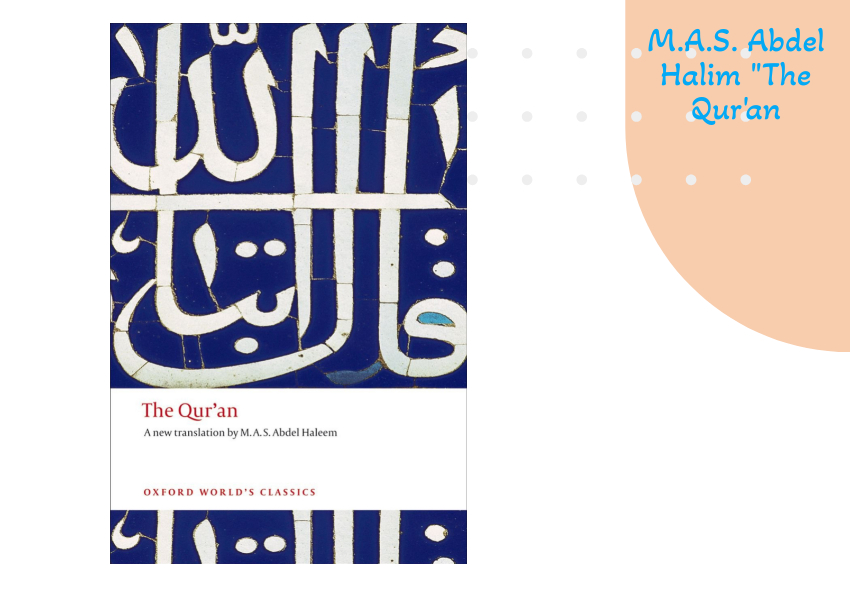
A New Translation”: Renowned for its clear and modern language, this translation gives priority to, and improves, the presentation of meaning in an easily accessible format to other readers.
Muhammad Marmaduke Pickathal’s “Translation of the Glorious Qur’an”:
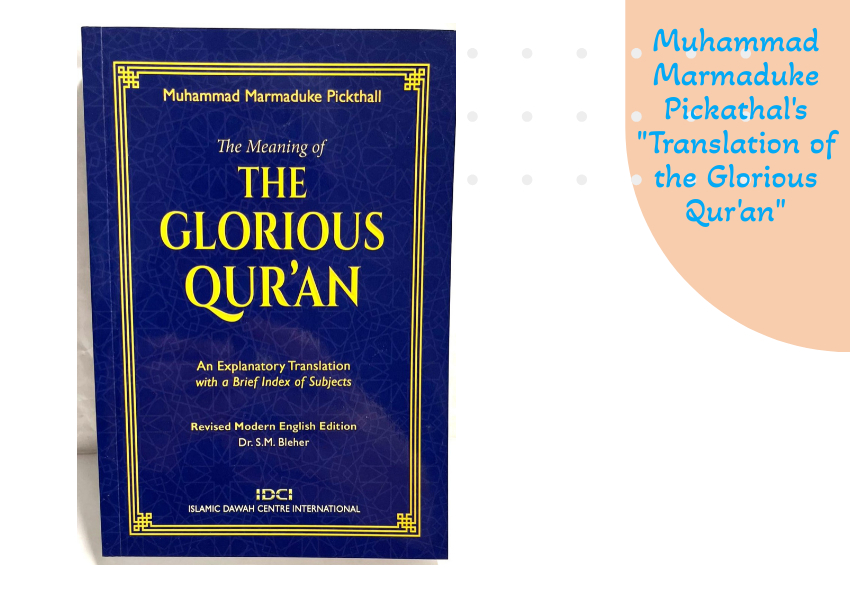
Often praised for its literary beauty and faithfulness to the sound of the Qur’an, this translation offers insightful commentary woven into the text, however may need a little modification to fit in a bit more classic style.
“The Clear Qur’an” by Mustafa Khattab:
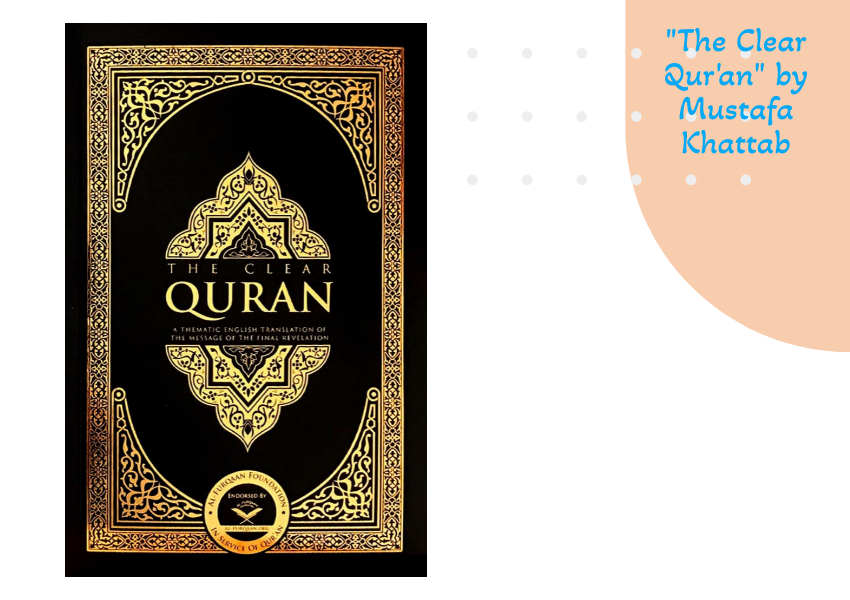
Known for its simple and concise language, this translation aims to remove complexity without sacrificing accuracy, making it popular for those who are beginning.
Hashim’s “The Message of the Qur’an”:
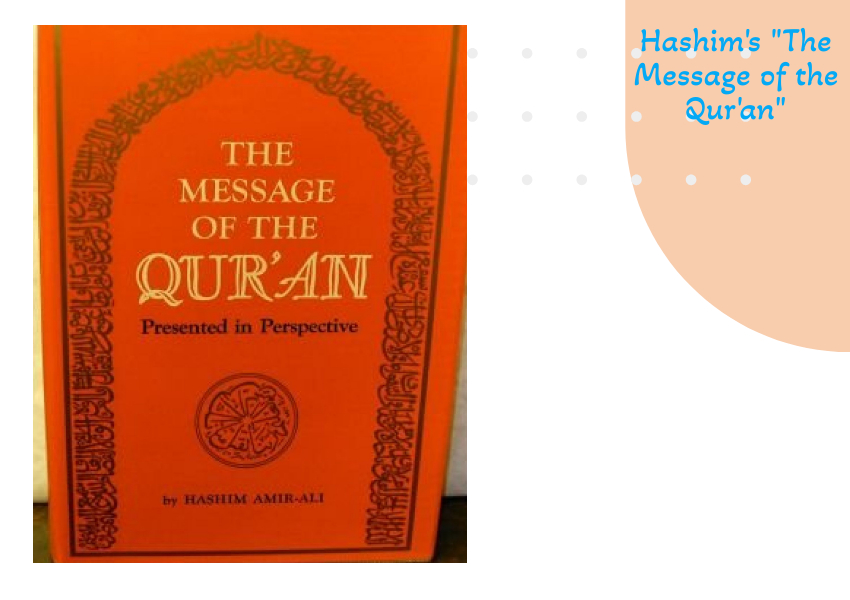
This translation repeats the verse in narrative form, providing a rich overview of the major themes of the Qur’an, especially suitable for those seeking a quick introduction.
These are just a few examples, and there are many other interpretations, each offering a different perspective on the Qur’an.
Frequently Asked Questions:
What is the “best” translation of the Quran in English?
No single definition is “best”, as each offers a different perspective and meets different needs. When choosing, consider your familiarity with the Arabic/Islamic language, reading purpose, and preferred style.
Is it better to read the Quran as a translation?
exactly! Translation is a valuable means of conveying the message of the Qur’an to Arabic speakers. You don’t have to read only Arabic.
What are the challenges in interpreting the Qur’an?
The Qur’an’s poetic language, layers of meaning, and cultural nuances make it difficult to fully understand in other languages. Each edition chooses a different one to fill this gap.
What resources can help me understand the Quran better?
The Tafseer (commentary) works of various scholars give us a deeper insight into the meaning and context of the verses. Look at things like Yusuf Ali’s “Holy Qur’an” with footnotes or separate tafseer collections like Ibn Kathir’s.
What are some of the popular English translations?
Abdullah Yusuf Ali “The Holy Qur’an”: scholarly, extensive footnotes, close to Arabic. M.A.S. Abdel Halim “The Quran: A New Translation”: clear language, modern language, emphasis on meaning. Muhammad Marmaduke Pickathal’s “Translation of the Glorious Qur’an”: Beautiful, rhythmic, with a monotonous (slightly outdated) commentary. “The Clear Quran” by Mustafa Khattab: Simple, concise, and good for beginners. as. Hashim’s “The Message of the Qur’an”: Narrative, Introduction.
How do I choose the right translation for me?
Consider your knowledge of Arabic/Islam, the purpose of reading (religious studies, general comprehension), and your preferred style of writing (words, music, etc.).
Can I use multiple versions?
sure! The comparison of different versions can lead to a multi-dimensional understanding of the Qur’anic message.
Where can I find a reputable tafseer job?
Many online libraries and Islamic websites offer online versions of classic tafseer such as Ibn Kathir, Tabari, or Sahih al-Bukhari.
Are there courses or lectures on the meaning of the Quran?
Several online and offline courses, workshops, and lectures have been offered by various Islamic institutions and scholars. You can access it through local churches, universities, or online forums.
Who can I give directions and questions to?
Local Imams or knowledgeable Muslims in your area can be a valuable resource to answer specific questions and guide you on your Quranic journey.
Conclusion:
Navigating through the wonderful translations of the English Qur’an can be a daunting endeavor but very rewarding. Remember, there is no single key to unlocking a complete translation. Each translation represents a different sound of the divine word, offering a unique window into the great message of the Quran. Ultimately, the “best” version is the one that agrees with your heart and mind and guides you closer to the essence of the Qur’anic message. As you explore different perspectives, engage with Tafseer resources, and seek guidance from knowledgeable individuals, your understanding will deepen and your relationship with the text will deepen Remember that the Quran is not just a book to be read and then set aside. It is a fascinating conversation, a call to reflection and action. As you delve into his verses, let his timeless message touch you, shape your mind, guide your choices, and enrich your life. Embrace the resonance of revelation, and embark on a lifelong journey of learning and growth through the divine wisdom of the Qur’an. May your search be filled with light, understanding, and peace.






